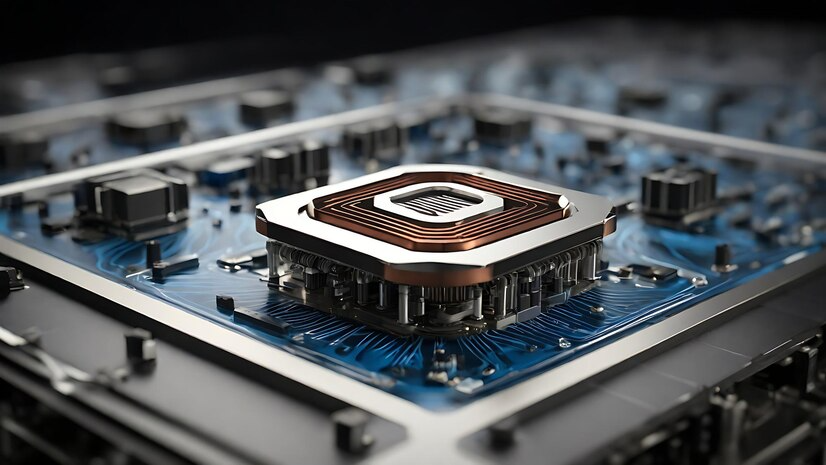Electronics and communication
Embedded System
Embedded systems are specialized computing systems designed to perform specific functions within larger systems or devices. Unlike general-purpose computers, which are designed for a wide range of tasks, embedded systems are optimized for efficiency, reliability, and real-time operation in constrained environments. They are commonly found in a diverse array of applications, including consumer electronics, automotive systems, industrial automation, medical devices, and IoT (Internet of Things) devices.
4.7 (253 user ratings)
★★★★★ 4.7/5
- 4.721 students
- Last updated 8/2022
Descriptions
Embedded systems are specialized computing systems designed to perform specific tasks within larger electronic devices or systems. These systems typically consist of a combination of hardware and software components optimized for low power consumption, compact size, and real-time operation. Common examples of embedded systems include microcontrollers found in consumer electronics, automotive control systems, medical devices, and industrial automation equipment.
The design and development of embedded systems involve various stages, including hardware design, software development, system integration, and testing. Engineers working in this field must possess a diverse skill set encompassing electronics design, programming, and system-level understanding. Additionally, embedded systems often require considerations for reliability, safety, and security, especially in applications such as automotive and medical devices where failures could have severe consequences. As technology advances, embedded systems continue to play a crucial role in powering a wide range of devices and applications, driving innovation in industries such as IoT, robotics, and automation.

Course content
Explore the fundamentals of embedded systems, including their applications, architectures, and design considerations, emphasizing real-world examples and case studies.
Learn about essential electronic components, circuits, and principles, covering topics such as voltage, current, resistors, capacitors, and basic circuit analysis techniques.
Dive into programming languages commonly used in embedded systems development, such as C and C++, understanding concepts like memory management, pointers, and data structures.
Delve into the architecture of microcontrollers, including CPU structure, memory organization, and input/output peripherals, gaining insights into their operation and capabilities.
Understand the process of interfacing microcontrollers with various external peripherals and devices, including sensors, actuators, displays, and communication modules.
Explore the principles and practices of embedded software development, including software design, implementation, debugging, and optimization techniques tailored for resource-constrained environments.
Study different types of sensors and actuators commonly used in embedded systems, their principles of operation, interfacing methods, and applications in various industries.
Learn about communication protocols and networking technologies used in embedded systems, including UART, SPI, I2C, Ethernet, Wi-Fi, and Bluetooth, and their integration into embedded designs.
Develop skills in debugging and testing embedded systems, including techniques for identifying and fixing software bugs, hardware issues, and system-level faults.
Explore techniques for managing power consumption in embedded systems, including low-power design strategies, battery management, and energy-efficient operation.
Gain insights into the design process for embedded systems, from requirements analysis and architecture design to prototyping, validation, and product deployment.
Understand the importance of industry standards and regulatory compliance in embedded systems development, covering relevant standards bodies, certification processes, and best practices.
Learn project management principles and collaborative tools essential for coordinating embedded systems projects, including task planning, scheduling, version control, and team communication.
Apply the knowledge and skills gained throughout the course to complete hands-on projects, addressing real-world challenges and demonstrating proficiency in embedded systems development.
₹ 5000/-
- 2 projects-minor and majors
- LMS access 24/7
- Q&A sessions
- Reports and Analysis
- Tests and Assignments
- 25+ Live recorded sessions
- 25+ Live recorded sessions
- Course Completion Certificate
- Internship Training Certificate
- Letter of Recommendation
- 3 Live Industrial Expert sessions
- Placement Training
share it :
Start your learning journey today! Enroll now in our online course.
What they say about us
Robotics course was an excellent introduction to the field, with engaging hands-on projects and knowledgeable Instructors

I enrolled in the Genetic Engineering course, the theory part was no doubt amazing, out the WetLab experience was awesome!

I recently completed the Al program with Vaidhik , and my experience was highly positive. The content was comprehensive, covering essential Al concepts seamlessly. The availability of resources and support contributed significantly to my success. Overall. I highly recommend Vaidhik Al program for anyone looking to delve into this field.

The online training program from vaidhik EduTech exceeded my expectations. The comprehensive curriculum covered everything from basics to advanced topics, and the interactive virtual labs provided a real-world simulation.

This was a great experience to do such an internship with vaidhik EduTech. Like at the beginning of the course I was not at all aware of Al, ML . But after completion of this course, I was filled with a bounty of knowledge. specifically, if I say about the class conductance and the way so it was awesome like to study online with such highly qualified teachers was an amazing experience, and classes were scheduled in time .


